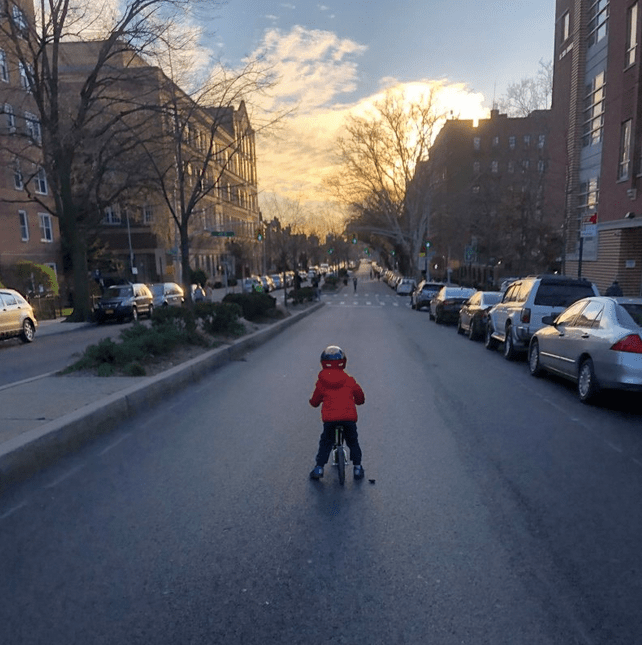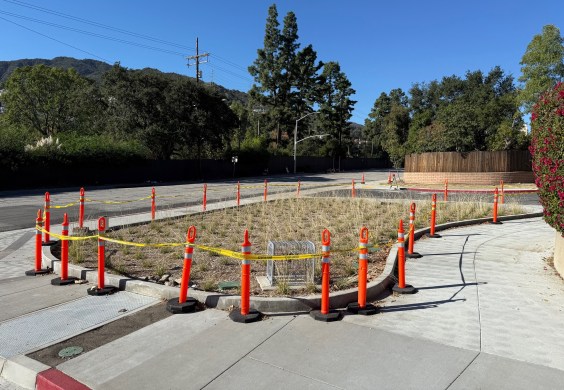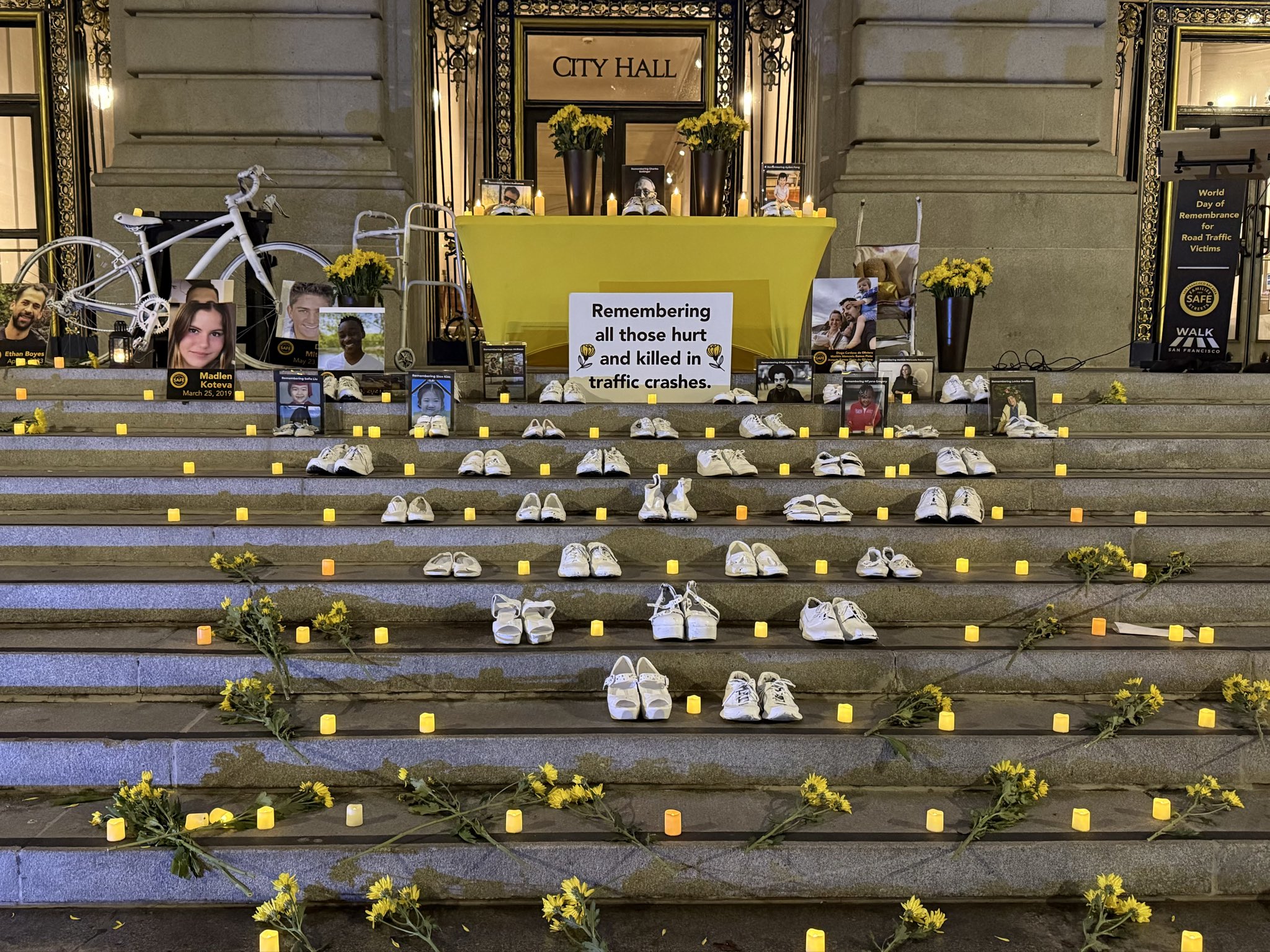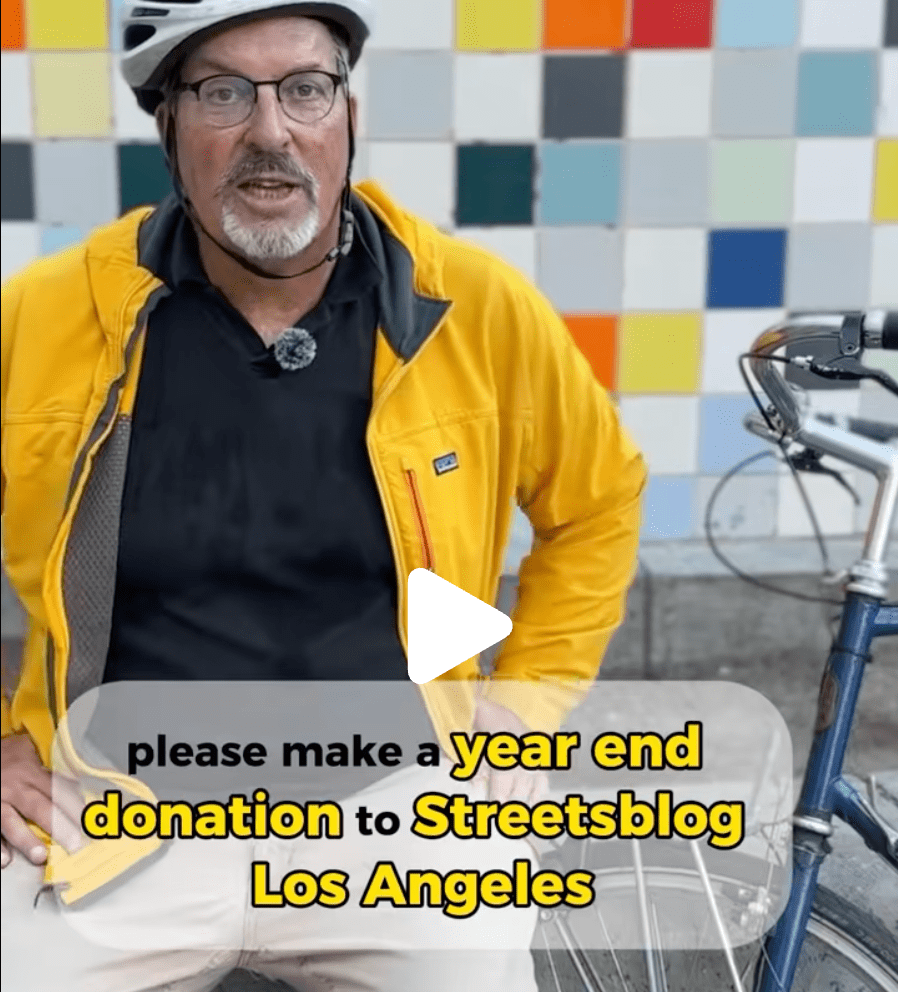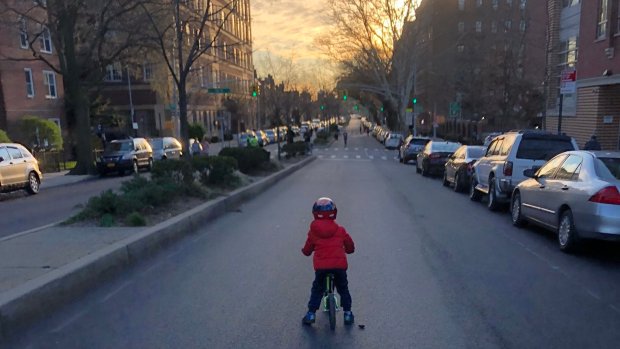
During the global pandemic, cities around the world are recognizing it makes sense to take road space that is usually used for moving and storing cars and instead give it to people. They’re reallocating the right-of-way from travel lanes and parking to create emergency bikeways for essential workers, and open space where residents can safely walk, bike, and exercise, with sufficient room for “social distancing.”
Dr. Tabitha Combs, a transportation researcher at the University of North Carolina, and Mike Lydon, founder of transportation design firm Street Plans, have started a crowdsourced database of what cities are doing to create safer, people-friendly streets during the “shelter at home” era.
View Coms’ and Lydon’s database here.
So far, Chicago has taken the opposite approach. Last week Mayor Lori Lightfoot closed the city’s most important routes for car-free transportation and recreation, the Lakefront Trail and The 606 elevated greenway. It was an understandable emergency response to dangerously crowded conditions on the paths and the failure of some residents to practice social distancing. But hopefully a compromise can be reached to allow residents to use these facilities for essential trips. In the meantime, Streetsblog’s Low-Stress Lakefront Pandemic Cycling Route offers an on-street alternative to the shoreline path.
Meanwhile Bogotá, New York City, Philadelphia, Washington, D.C., Calgary, and Minneapolis have prohibited cars on certain streets. Berlin and a district in Mexico City have created new temporary bike lanes.
Excited to share that a number of streets and parkways in @CityMinneapolis will be opened to allow more space to walk/run/bike outside while still adhering to best social distancing practices. These changes take effect at 5pm today. Here’s the list….
— Linea Palmisano (@LineaPalmisano) March 27, 2020
Privately-owned bike-share companies in Mexico City and Bogotá are offering free rides to healthcare workers during the pandemic. (These companies supplement the cities’ publicly-owned bike-share systems). Divvy, Chicago’s publicly-owned bike-share network, is also offering free rides to healthcare workers, plus $1 rides and $49 annual memberships to everyone else.
The database also notes that five cities have removed “beg buttons” from intersections, which pedestrians are normally required to press to request a walk signal. This can result in people crowding on sidewalks waiting for a walk signal, which creates a risk of viral transmission – not to mention it eliminates something many people are touching. Thankfully, beg buttons aren’t common in Chicago. The Chicago Pedestrian Plan of 2012 (see page 40) called for removing nearly all of them, but some still remain.
Back to the Lakefront Trail issue. Although Chicago’s “non-essential” workplaces have been closed during the pandemic, there are still Chicagoans who need to commute for essential jobs and errands. But because there are so few people driving at this time, the streets are relatively empty, which encourages dangerous speeding.
Reopening the Lakefront Trail for essential commutes would help keep workers safe from traffic crashes. And opening some streets in various parts of the city for car-free transportation and recreation is a very practical idea. Our city hosts hundreds of street festivals, races, and other special events that involve temporarily pedestrianizing streets, so this isn’t rocket science.
Shortly before I wrote this post, I biked to the grocery store. The other shoppers were careful to give me the prescribed 6? of space at the store. But on my way home, not a single driver provided me with the three feet of clearance that’s required by Illinois law.
If you hear of a city doing something innovative with their streets to improve safety during the pandemic, add it to the shared spreadsheet or email me. Hat tip Daniel Ronan.
Here are some tips on preventing the spread of coronavirus, and advice for Chicagoans on what to do if you think you may have been exposed to the virus.
